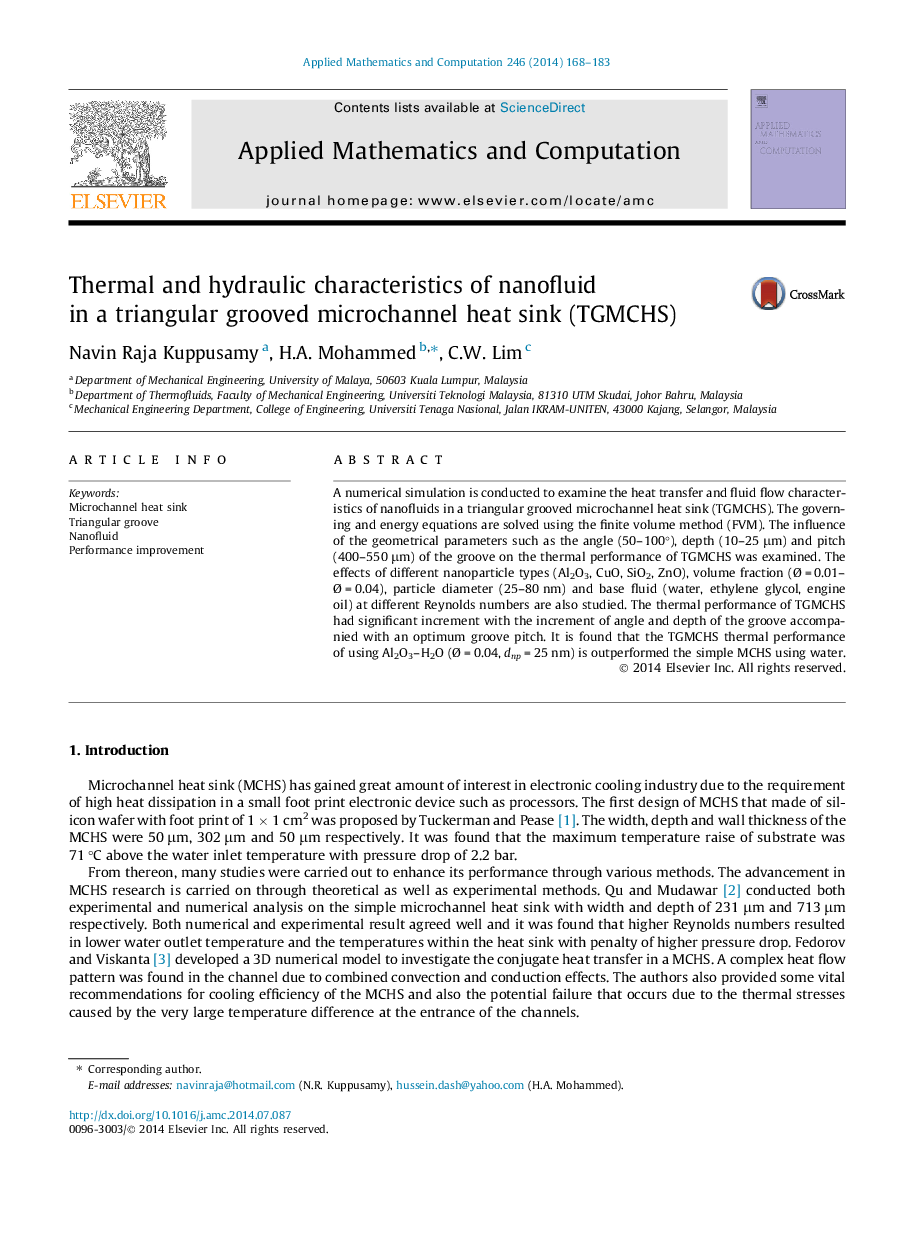| Article ID | Journal | Published Year | Pages | File Type |
|---|---|---|---|---|
| 4627651 | Applied Mathematics and Computation | 2014 | 16 Pages |
•Studied performance of triangular grooved microchannel heat sink (TGMCHS) using nanofluid.•Solved 3D laminar flow and conjugate heat transfer of TGMCHS using FVM.•Investigated the effect of geometrical parameters, nanofluid type, and its concentration.•Analyzed the effects of particle diameter, base fluid, Reynolds number.•TGMCHS efficiency is increased by 179.55% compared to simple MCHS.
A numerical simulation is conducted to examine the heat transfer and fluid flow characteristics of nanofluids in a triangular grooved microchannel heat sink (TGMCHS). The governing and energy equations are solved using the finite volume method (FVM). The influence of the geometrical parameters such as the angle (50–100°), depth (10–25 μm) and pitch (400–550 μm) of the groove on the thermal performance of TGMCHS was examined. The effects of different nanoparticle types (Al2O3, CuO, SiO2, ZnO), volume fraction (Ø = 0.01–Ø = 0.04), particle diameter (25–80 nm) and base fluid (water, ethylene glycol, engine oil) at different Reynolds numbers are also studied. The thermal performance of TGMCHS had significant increment with the increment of angle and depth of the groove accompanied with an optimum groove pitch. It is found that the TGMCHS thermal performance of using Al2O3–H2O (Ø = 0.04, dnp = 25 nm) is outperformed the simple MCHS using water.
